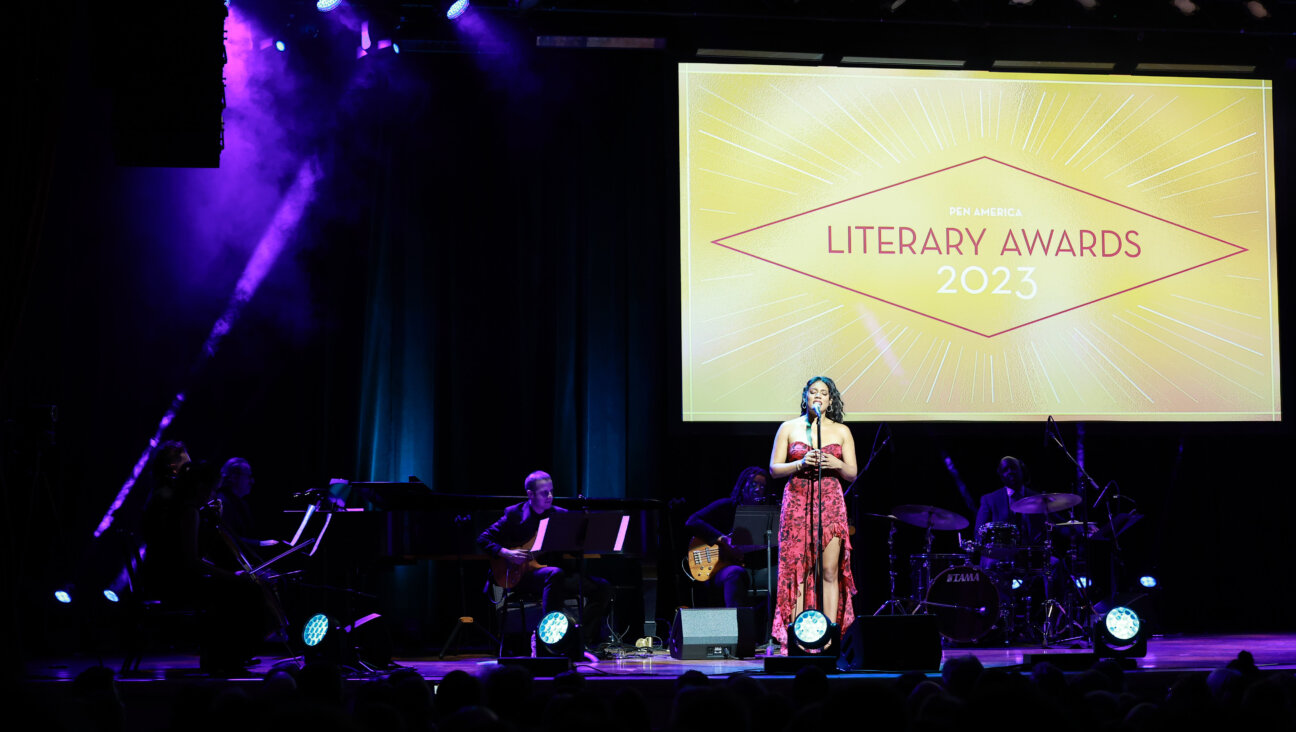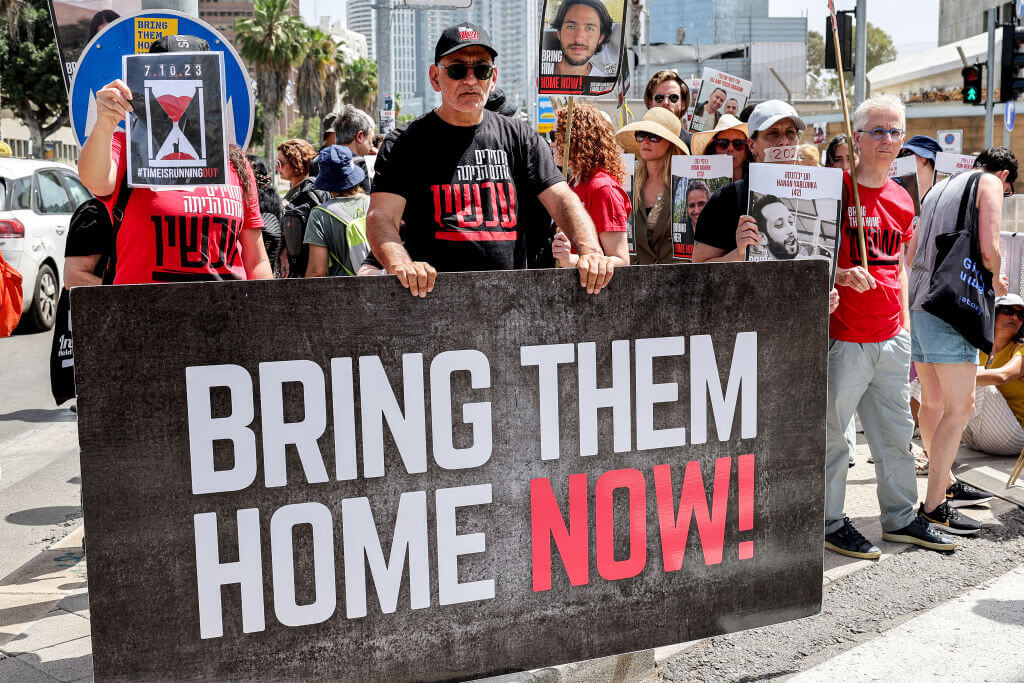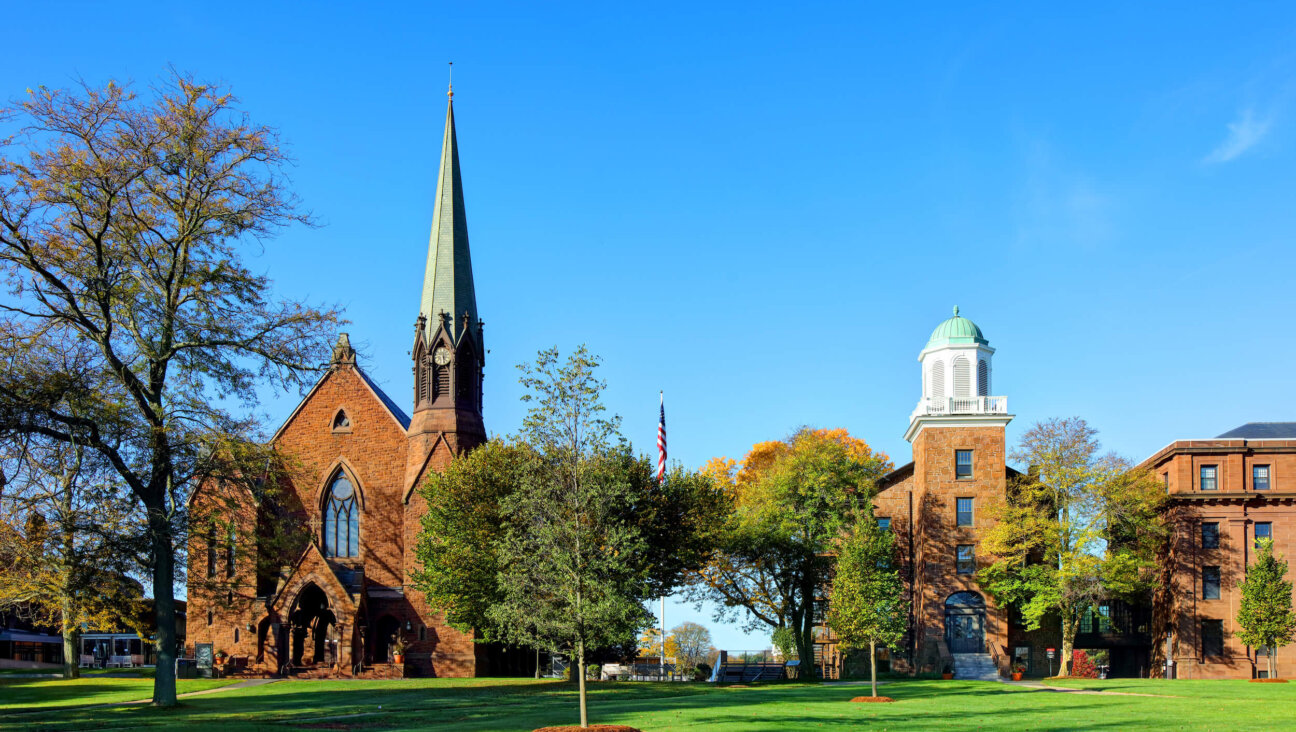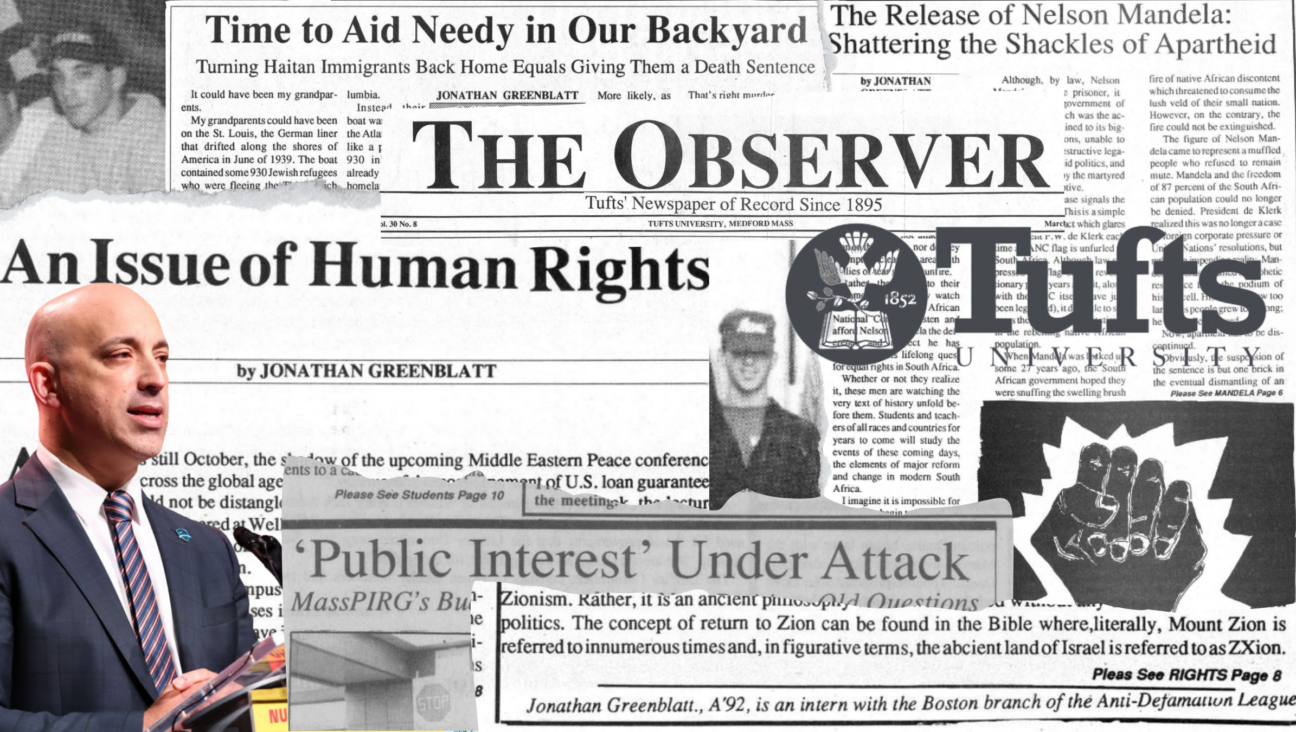Coming Out: It’s the Jewish Thing to Do At Hanukkah
This month marks the occasions of Christmas and Hanukkah — and the two-year anniversary of the decision by the Conservative movement’s Committee on Jewish Law and Standards that homosexuality does not violate Jewish law. Although these three events may not seem related at first, I think that each one informs the other in meaningful ways.
Last things first. Two years after the CJLS decision, we can safely say that the sky has not fallen on the Conservative movement. On the contrary, with the enormous and energy-depleting distraction of the “gay issue” at last out of the way, the skies seem clearer than ever — or at least the clouds are more visible. With a new chancellor at the Jewish Theological Seminary and a new generation of young rabbis who are unafraid of voicing their views, the movement seems ready to address the more pressing issues it faces: declining affiliation, loss of meaning and a general lack of consensus about what the movement stands for. These are serious issues, but as anyone who has been around JTS lately can tell you, it’s a breath of fresh air that at last they can be tackled head-on. And the school’s first openly gay rabbinical student tells me he’s doing just fine, thanks.
The two-year non-anniversary of the sky falling also means a great deal for how all of us consider the relationship between sexuality and religion. For several years, the only question was, “Is being gay okay or not?” as if that’s the only one worth asking. But two years on, with the sky having not fallen and with people more or less over the gay issue, we can start asking more interesting ones, like, what do GLBT (gay, lesbian, bisexual and transgender) people add to the Jewish community? In what ways does sexual diversity enrich all of our lives, whatever our sexual or gender identity? And, just like men can and should learn from women’s experiences, how can all of us learn from GLBT experiences of religion, psychology, power, love and all the rest of life?
By way of example, and bringing me back to Hanukkah and Christmas, I want to focus on one aspect of that experience: coming out.
Hanukkah is a “coming out” holiday, in both its origins and its contemporary forms. The Hanukkah story is, in large part, a story of coming out — being open and honest about oneself and one’s values, and demanding that difference be accommodated. The circumstances that led to the Maccabean revolt were not so much single acts of oppression as they were a slow, insidious process of erasure. Some of that process was imposed by the Syrian-Greek occupiers of Palestine, but some, let’s remember, was embraced by Hellenizing Jews. As means of assimilation, Jews semi-voluntarily took on Greek names and Greek customs, and the regarding of Jewish worship as one among many options.
To take but one colorful example, circumcision was abandoned not by force of law, but because Hellenized Jewish society involved frequent nudity — in sports, at the baths, etc. — and circumcised penises were considered ugly and embarrassing. Indeed, the Greeks regarded the exposed glans much as we today regard genital exposure in general: as nakedness. Competing in the gymnasium with a circumcised penis would be like going to your local gym in the nude. Many Jews thus chose not to circumcise their sons so that they could assimilate better into the dominant culture.
The Maccabees, in a part of the Hanukkah story they don’t teach you in Sunday school, rebelled against this assimilation, even forcibly circumcising baby boys against the wishes of the children’s parents. Hardly a model of religious tolerance — but definitely a form of coming out. They didn’t demand equal treatment of Hellenizers and non-Hellenizers; they demanded that Jews be acknowledged as different.
Today, Hanukkah plays an oddly similar role. In America, we are inundated with images of Christmas: endless sleighs and trees and Santas and the rest. Everyone’s meant to get into the spirit of the “holidays.” Which is why, as Kyle Broslovsky of Comedy Central’s animated series “South Park” put it, it’s hard to be a Jew on Christmas. Especially with the far right now decrying a “war on Christmas” and boycotting stores that say ‘Happy Holidays,’ maybe it’s better to just lay low on the Hanukkah thing, put on the dumb red hat and wait until it’s over.
To celebrate Hanukkah today is thus a form of coming out: admitting difference, recognizing that one is not the same as everyone else and, hopefully, celebrating the unique gifts that being different offers.
But coming out is not easy. Here, my own story may be instructive. I sort of knew I was gay at 18, definitely knew at 23, but didn’t come out until, at age 30, a wonderful woman I had been dating finally dumped me (good for her!) and I realized I couldn’t “make it work” as a bisexual. Why? What took me so long? I’m an intelligent, reasonably sensitive and courageous guy. Why did I spend 10 years hating myself, repressing my deepest desires, and failing to embrace the gifts of emotional and sexual fulfillment?
As we celebrate this “coming out” holiday, and as encouragement to those still hesitating whether to come out themselves — sexually, religiously or in any other way — I offer the following reasons.
First, I didn’t know what I was missing. I had no idea how dead I was inside, how emotionally cut off I was from other people or what love was really about. My friends will tell you: I was a different person entirely — more sarcastic, more insular, less open, less honest. Try it yourself: Lie to everybody you know about what’s most important to you, and see what happens. And if you’ve been doing it yourself, please take the leap of faith. It’s way, way better on this side of the chasm. Trust me.
Oh, and by the way, “Hate the sin, love the sinner” doesn’t work. Sexual identity, like religious identity, isn’t some part-time hobby. If you hate the sin, you’re going to end up hating yourself.
Second, and relatedly, I thought that coming out would destroy everything I valued. I thought it would end my Jewish religious life, end my chances at normalcy, and alienate me from family and friends. I was wrong on all counts. My spiritual and religious life blossomed once I stopped hating God for making me gay. I was able to start thinking about having a real life, a family and a career only after I stopped having fake ones. And my being honest about myself has enabled me to forge friendships that are deeper than I had ever imagined back in the closet. (“Closet” is probably too cozy a word; “tomb” or “trap” or “web of lies” is better.)
I have also watched my family members evolve in their own views and come not only to accept my sexuality but also to embrace it — a tall order, to be sure, especially as they themselves still encounter homophobia from their friends. But what mother doesn’t want her son to be happy? Eventually, we learn that love, happiness, justice and holiness are all that matters — and if homosexuality, heterosexuality or bisexuality leads to those things, baruch hashem.
Finally, I think it took me so long to come out because I lacked the kind of community and values that would have given me the courage I needed to do so. All my friends and family members were straight, and the gay world I saw on TV looked superficial, hypersexual and weird. It was only once I came out that I realized sexuality is about more than having sex, and that being queer, like being Jewish, is a blessing. In an ideal world, we all grow up with religious and personal role models. But because few GLBT people grow up in gay families, coming out can be lonely, terrifying and embarrassing.
Yet it is also the Jewish thing to do. It may be hard to be a Jew on Christmas, but it’s by daring to do so that we’ve survived the past 3,000 years and created a culture and religion worth preserving. Well before the Maccabees, the very first Jew, Abraham, was told by God to come out: to get out of his father’s house, follow his own spiritual path and cross over to the other side of the river. From this act, our nation and language get the name Ivri — “Hebrew” — the one who crosses over. And from Abraham’s repeated answers to God’s queries we get the consummate statement of self-exposure: Hineni, Here I am.
The lessons of coming out are Jewish lessons. Just like repressed gay people, repressed Jews don’t know how damaging it is to closet our religious and cultural selves; how invigorating it is to be open, honest and celebratory about who we are, or how empowering it is to be part of a community of boundary-crossers. So, my Hanukkah advice? Stop repressing and stop equivocating. Whatever closet you’re hiding in, whether it’s sexual, religious, professional, cultural, or just plain dull and repressive, light the Hanukkah candles (or don’t!), celebrate nonconformity — and, for God’s sake and yours, come out, please, wherever you are.

I hope you appreciated this article. Before you go, I’d like to ask you to please support the Forward’s award-winning journalism this Passover.
In this age of misinformation, our work is needed like never before. We report on the news that matters most to American Jews, driven by truth, not ideology.
At a time when newsrooms are closing or cutting back, the Forward has removed its paywall. That means for the first time in our 126-year history, Forward journalism is free to everyone, everywhere. With an ongoing war, rising antisemitism, and a flood of disinformation that may affect the upcoming election, we believe that free and open access to Jewish journalism is imperative.
Readers like you make it all possible. Right now, we’re in the middle of our Passover Pledge Drive and we still need 300 people to step up and make a gift to sustain our trustworthy, independent journalism.
Make a gift of any size and become a Forward member today. You’ll support our mission to tell the American Jewish story fully and fairly.
— Rachel Fishman Feddersen, Publisher and CEO
Join our mission to tell the Jewish story fully and fairly.
Only 300 more gifts needed by April 30

























